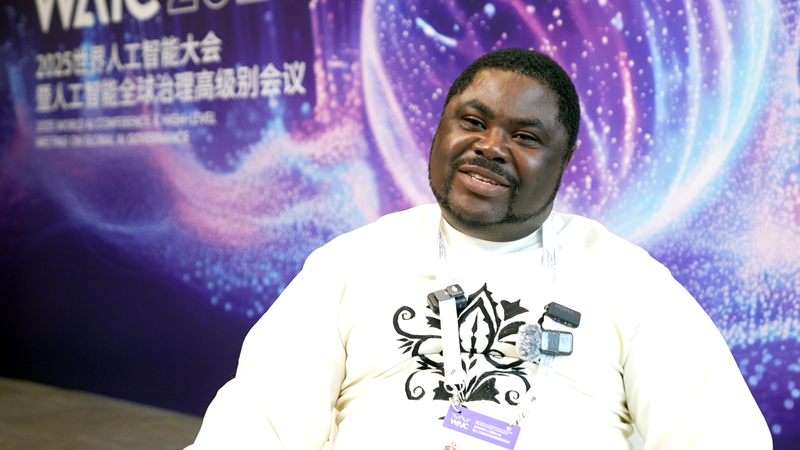As the World Artificial Intelligence Conference (WAIC) wrapped up in Shanghai, African mathematician Abdon Atangana offered a stirring critique of the global research landscape.
The Mathematical Foundation of AI
Atangana, whose groundbreaking work in fractional calculus has reshaped mathematical modeling, argues that "mathematics is the language, the grammar and the backbone of artificial intelligence."
"To have good AI, we need predictive mathematics," he said, highlighting the deep synergy between mathematical discovery and AI advancement.
A Vision for Inclusive AI
Challenging the dominance of the U.S.–the Chinese mainland axis, Atangana called for a more balanced field. "I don’t think one country should lead. It’s better if three, four or five nations compete—when citizens from different countries work hard, everyone benefits."
He sees AI’s most urgent applications in the Global South: ensuring food, electricity, education and health security for Africa’s communities.
Reshaping Power Dynamics
Reflecting on his personal experiences, Atangana contrasted invitations to the Chinese mainland with those to the U.S. "On the mainland, I feel respected. In the U.S., I feel like a kid—I arrive at the airport and I’m treated like a suspect, not because of who I am, but because of where I’m from."
He praised the mainland’s collaborative approach with African researchers, describing it as free of colonial undertones and "representing the voice of the Global South."
A Message of Self-Determination
In his closing remarks, Atangana invoked a powerful metaphor: "When an eagle grows up with chickens, it thinks it’s a chicken—until the day it realizes it can soar." He urged African nations to embrace self-reliance, prioritizing homegrown expertise and investment in future generations.
Atangana’s vision isn’t anti-Western but pro-self-determination: "If I were in charge of Africa, I wouldn’t accept handouts—I would work hard and equip my children with the knowledge our continent needs to thrive."
Reference(s):
WAIC: Leading African mathematician on AI and the continent's rise
cgtn.com



